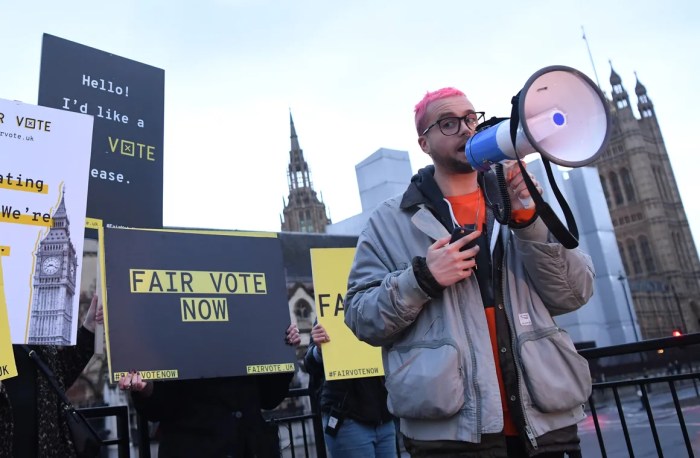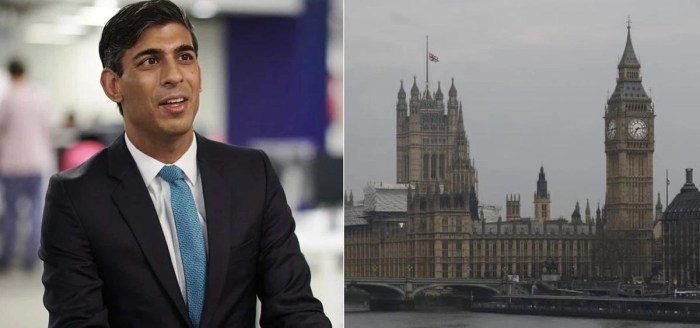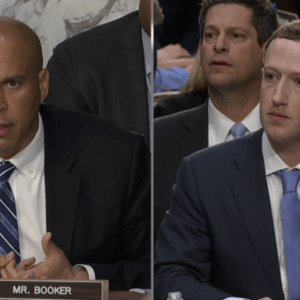Facebook CEO declines to testify before UK Parliament over data abuse – a bold move that’s sent shockwaves through the tech world. The refusal throws a spotlight on the ongoing battle between powerful tech giants and governmental oversight, raising questions about accountability and the future of data privacy. This isn’t just about one CEO; it’s about the precedent it sets for how tech companies navigate scrutiny in the face of serious allegations.
The UK Parliament’s investigation into Facebook’s data handling practices has been brewing for some time, fueled by concerns over user data misuse and alleged breaches of trust. The CEO’s refusal to appear before the committee has ignited a firestorm of criticism, sparking debates about the powers of Parliament and the potential legal consequences for Facebook. The situation unfolds against a backdrop of increasing global pressure on tech companies to be more transparent and accountable for their actions.
The Refusal to Testify

Source: iphoneincanada.ca
The Facebook CEO’s decision to skip a UK parliamentary hearing regarding data abuse allegations has sparked significant controversy. This refusal, coming amidst growing scrutiny of Big Tech’s influence and data handling practices, raises crucial questions about accountability and the power dynamics between corporations and governmental oversight. The implications extend beyond the immediate situation, potentially impacting future investigations and the broader regulatory landscape for tech giants.
Circumstances Surrounding the Refusal
The CEO’s absence from the UK Parliament hearing stems from a complex interplay of factors. While official statements may cite scheduling conflicts or other logistical issues, the underlying reasons likely involve a strategic calculation to minimize exposure to potentially damaging questioning. The hearing was focused on allegations of Facebook’s role in the Cambridge Analytica scandal and other instances of data misuse, areas where the company has already faced substantial criticism and legal challenges. The refusal to appear suggests a belief that the potential damage from direct testimony outweighs the benefits of cooperating with the investigation. This approach contrasts sharply with strategies adopted by some other tech companies that have opted for more collaborative approaches to parliamentary inquiries.
Potential Legal Ramifications
The CEO’s refusal to testify carries potential legal ramifications for both the individual and Facebook as a corporation. Parliament could issue a summons compelling his appearance, potentially leading to contempt of Parliament charges if he continues to refuse. Such charges carry significant penalties, including fines or even imprisonment. Furthermore, the refusal could damage Facebook’s reputation further, impacting investor confidence and potentially leading to stricter regulatory scrutiny in the future. This lack of cooperation could also weaken Facebook’s defense in ongoing legal battles related to data privacy and misuse. The precedent set by this refusal could embolden other tech companies to resist similar investigations.
Comparison with Other Instances of Corporate Non-Compliance
The Facebook CEO’s refusal echoes similar instances of corporate non-compliance with parliamentary inquiries across various sectors. Historically, large corporations have sometimes resisted such investigations, often citing concerns about confidentiality, competitive disadvantage, or the potential for self-incrimination. However, the increasing public pressure for greater corporate accountability, coupled with growing regulatory scrutiny, has shifted the balance of power. The outcome of this specific case will significantly influence how future corporate responses to parliamentary investigations are shaped.
Responses of Other Tech CEOs to Similar Investigations
The following table compares the responses of several tech CEOs to similar parliamentary inquiries, highlighting the varying approaches adopted by different companies:
| CEO | Company | Inquiry Subject | Response |
|---|---|---|---|
| Mark Zuckerberg | Meta (Facebook) | Data Privacy and Misuse | Initially testified remotely; subsequent refusal to appear before UK Parliament |
| Sundar Pichai | Antitrust and Data Practices | Testified before multiple parliamentary committees | |
| Tim Cook | Apple | Data Privacy and Security | Testified before parliamentary committees |
| Satya Nadella | Microsoft | Antitrust and Data Practices | Testified before parliamentary committees |
Data Abuse Allegations

Source: politico.eu
Mark Zuckerberg dodging the UK Parliament? Seriously? It’s all about accountability, people, and the whole thing feels eerily similar to the US government’s crackdown on Chinese tech, as highlighted in this article about the FCC plan to deter carriers from using Chinese equipment: fcc plan deter carriers from using chinese equipment. Both situations scream about protecting user data and national security – but one CEO is hiding, while the other is facing a whole different level of scrutiny.
What a mess.
The refusal of Facebook’s CEO to testify before the UK Parliament underscores the gravity of the data abuse allegations swirling around the social media giant. These allegations aren’t just about privacy breaches; they represent a potential erosion of trust and raise serious questions about the ethical responsibilities of powerful tech companies. The scale and impact of these accusations are significant, affecting millions of users globally.
The nature and scope of the data abuse allegations against Facebook are multifaceted and far-reaching. They encompass a range of practices, from the unauthorized sharing of user data with third-party companies to the exploitation of user information for political manipulation. These actions have not only damaged individual users’ privacy but also potentially influenced democratic processes. The consequences for Facebook, if proven, could be substantial, impacting its reputation, financial standing, and future operations.
Specific Examples of Data Abuse Allegations
Several high-profile incidents have fueled the allegations against Facebook. The Cambridge Analytica scandal, for instance, involved the harvesting of personal data from millions of Facebook users without their consent. This data was then allegedly used to target political advertising during the Brexit referendum and the 2016 US presidential election. Another example involves the sharing of user data with various third-party app developers, some of whom allegedly misused this information for commercial gain or other unethical purposes. These examples highlight the vulnerability of user data within Facebook’s ecosystem and the potential for misuse.
Potential Impact on Facebook Users
The potential impact of these data abuse allegations on Facebook users is profound. Beyond the immediate violation of privacy, users face risks including identity theft, financial fraud, and manipulation through targeted advertising or disinformation campaigns. The erosion of trust in Facebook as a platform could also lead to decreased engagement and a shift towards alternative social media platforms. Furthermore, the long-term psychological effects of having personal information misused remain a concern. The feeling of vulnerability and a lack of control over one’s personal data can have significant emotional consequences.
Key Regulatory Bodies Involved
Several key regulatory bodies are involved in investigating these allegations. In the UK, the Information Commissioner’s Office (ICO) has been actively involved in investigating data breaches and enforcing data protection laws. Similarly, in the US, the Federal Trade Commission (FTC) has launched investigations into Facebook’s data handling practices. Internationally, various data protection authorities are also examining Facebook’s activities, highlighting the global reach and impact of these allegations. These investigations aim to ensure accountability and potentially lead to significant penalties for Facebook if violations are confirmed.
Types of Data Abuse Alleged
The following list Artikels the different types of data abuse alleged against Facebook:
- Unauthorized sharing of user data with third-party apps and companies.
- Use of user data for targeted political advertising without consent.
- Insufficient protection of user data leading to data breaches and leaks.
- Lack of transparency regarding data collection and usage practices.
- Exploitation of user data for commercial gain by third-party developers.
- Failure to adequately address and prevent data abuse by third-party apps.
UK Parliament’s Investigative Powers and Authority: Facebook Ceo Declines To Testify Before Uk Parliament Over Data Abuse
The UK Parliament possesses significant investigative powers, particularly when dealing with matters of public interest and corporate malfeasance. These powers are crucial for holding powerful entities accountable and ensuring transparency in their operations, especially within the rapidly evolving landscape of the tech industry. The refusal of the Facebook CEO to testify highlights the ongoing tension between corporate power and parliamentary oversight.
The UK Parliament’s ability to investigate corporate wrongdoing stems from its inherent legislative and oversight functions. Committees, like the Digital, Culture, Media and Sport (DCMS) Committee, are empowered to summon witnesses and demand documents. This authority is derived from parliamentary privilege, a fundamental principle underpinning the UK’s democratic system. This privilege allows Parliament to conduct its business without external interference, enabling thorough investigations even against powerful corporations.
Parliamentary Investigative Mechanisms
The Parliament can employ several mechanisms to compel testimony. These range from issuing formal summonses, which carry the weight of law, to utilizing the power of contempt of Parliament. Contempt of Parliament is a serious offense, potentially leading to fines or even imprisonment for those who refuse to comply with a parliamentary summons. Furthermore, the Parliament can leverage its influence to initiate investigations by other bodies, such as the Information Commissioner’s Office (ICO), which possesses enforcement powers to impose substantial fines for data breaches.
Comparison with Other Countries
The UK’s approach to regulating tech companies is evolving, and its regulatory framework is often compared to those of other countries, particularly the US and the EU. While the US leans towards a more laissez-faire approach, relying heavily on self-regulation and antitrust lawsuits, the EU has taken a more proactive stance with regulations like the General Data Protection Regulation (GDPR). The UK, post-Brexit, is attempting to strike a balance, aiming to foster innovation while ensuring robust consumer protection and accountability from tech giants. The outcome of the Facebook CEO’s refusal to testify will significantly influence the UK’s future approach and the effectiveness of its regulatory framework.
Potential Consequences for Facebook
If the UK Parliament were to utilize its full powers, Facebook could face significant consequences. These could include substantial fines levied by the ICO for non-compliance, reputational damage affecting investor confidence and user trust, and potential legislative changes impacting Facebook’s operations within the UK market. The negative publicity alone could significantly harm Facebook’s brand image and public perception. The precedent set by the Parliament’s actions would also influence how other tech companies interact with future parliamentary inquiries. For example, the ongoing investigation into Google’s business practices serves as a strong indicator of the potential consequences for non-compliance.
Steps to Compel Testimony
The UK Parliament could take several steps to compel the Facebook CEO’s testimony. First, it could issue a formal summons, clearly outlining the reasons for the request and the legal basis for the demand. Failure to comply could then lead to a finding of contempt of Parliament, initiating legal proceedings. Parallel to this, the Parliament could leverage public pressure and media attention to increase the pressure on Facebook to cooperate. Finally, the Parliament could initiate further investigations through other regulatory bodies, potentially leading to multiple avenues of legal action and enforcement.
Public Perception and Impact on Facebook’s Reputation
The Facebook CEO’s refusal to testify before the UK Parliament sparked a firestorm of public criticism, further eroding already fragile public trust in the social media giant. The event became a focal point for existing anxieties about data privacy, corporate accountability, and the unchecked power of tech behemoths. This wasn’t just a PR hiccup; it was a significant blow to Facebook’s image, potentially impacting user engagement, investor confidence, and future regulatory battles.
The public reaction was swift and largely negative. News outlets around the world highlighted the CEO’s absence, framing it as a blatant disregard for parliamentary processes and a sign of corporate arrogance. Social media itself, ironically, became a platform for widespread condemnation, with many users expressing their frustration and anger. This wasn’t simply a case of “bad press”; it fueled existing concerns about Facebook’s handling of user data and its role in the spread of misinformation. The perception of evasion and a lack of transparency amplified pre-existing criticisms.
Public Outrage and Comparison to Other Corporate Scandals
The public’s response to the CEO’s refusal mirrors the outrage seen in other corporate scandals involving data misuse. Think back to the Cambridge Analytica scandal – a similar pattern of public anger, demands for accountability, and calls for stricter regulation emerged. The current situation, however, is arguably amplified by the increasingly prevalent distrust in large tech companies and their business practices. The lack of a visible and accountable figurehead, willing to address concerns directly, exacerbates the negative perception. This contrasts sharply with instances where CEOs have faced similar situations by taking responsibility and engaging transparently with the public and regulatory bodies. For example, while not directly comparable, a CEO choosing to appear before a parliamentary committee, even amidst criticism, could significantly shape public opinion and lessen the negative impact.
Long-Term Effects on Facebook’s Reputation and Brand Image, Facebook ceo declines to testify before uk parliament over data abuse
The long-term consequences of this refusal could be significant. Damaged reputation translates to decreased user trust, potentially leading to a decline in user engagement and advertising revenue. Investors might also react negatively, impacting the company’s stock price and overall valuation. Furthermore, the incident could embolden regulators to pursue more aggressive oversight, leading to increased compliance costs and potential legal challenges. The reputational damage could linger for years, affecting Facebook’s ability to attract and retain talent, form partnerships, and maintain a positive public image. This is particularly concerning given Facebook’s already ongoing struggles with negative press and regulatory scrutiny. The lack of a decisive and visible response only serves to prolong the negative narrative.
Hypothetical Mitigation Strategy
To mitigate the negative publicity, Facebook could have adopted a proactive and transparent approach. The CEO’s appearance before the UK Parliament, regardless of the potential for difficult questioning, would have demonstrated a commitment to accountability. A public statement acknowledging concerns, outlining steps taken to improve data protection, and expressing a willingness to cooperate with investigations could have softened the blow. Furthermore, a coordinated media strategy focusing on positive initiatives and community engagement could have helped counter the negative narrative. A carefully crafted apology, combined with concrete actions demonstrating a commitment to user privacy and data security, might have helped rebuild trust, albeit slowly. This contrasted approach would have shifted the narrative from one of evasion to one of proactive engagement and responsibility.
Future Regulatory Landscape for Tech Companies
Mark Zuckerberg’s refusal to testify before the UK Parliament has sent shockwaves through the tech world, highlighting a growing global push for stricter regulation of social media giants. This isn’t just about Facebook; it’s a pivotal moment signifying a shift in the balance of power, with governments increasingly asserting their authority over the previously unchecked dominion of big tech. The implications for the future regulatory landscape are profound and far-reaching.
The incident underscores a growing global trend towards more stringent data privacy regulations and increased accountability for tech companies. We’re likely to see a surge in legislation aimed at curbing data abuse, enhancing transparency, and empowering users with greater control over their personal information. This isn’t limited to the UK; similar pressures are building across the EU, US, and other jurisdictions, creating a complex and evolving regulatory environment for tech companies to navigate.
Increased Scrutiny of Data Handling Practices
Expect intensified scrutiny of how tech companies collect, use, and protect user data. The UK, for example, might introduce stricter penalties for non-compliance with existing regulations like the UK GDPR, mirroring the hefty fines levied by the EU. We could also see new legislation demanding greater transparency in algorithmic decision-making, particularly concerning areas like targeted advertising and content moderation. The US, while having a more fragmented regulatory approach, is also witnessing increased calls for federal privacy legislation, potentially leading to a more unified and robust regulatory framework. This could involve stricter requirements for data minimization, purpose limitation, and user consent, as well as clearer guidelines on data retention policies.
Potential for New Legislation
The UK government might introduce legislation similar to the EU’s Digital Services Act (DSA) and Digital Markets Act (DMA), focusing on the responsibilities of large online platforms. This could include mandatory audits of algorithms, stricter rules on content moderation, and penalties for failing to remove harmful content. Furthermore, we might see legislation requiring greater transparency in political advertising and efforts to combat the spread of disinformation. These regulations could require companies to provide detailed reports on their data processing activities, including the types of data collected, the purposes for which it is used, and the security measures in place to protect it. This mirrors the requirements under GDPR and CCPA, but with potentially more stringent enforcement mechanisms.
Best Practices for Enhanced Transparency and User Data Protection
Tech companies need to proactively adopt best practices to stay ahead of the curve. This includes implementing robust data security measures, obtaining meaningful user consent for data collection, and providing clear and accessible privacy policies. Proactive transparency regarding data usage and algorithmic decision-making is crucial. Companies should conduct regular audits of their data handling practices and implement mechanisms for users to access, correct, and delete their data. Investing in privacy-enhancing technologies, such as differential privacy and federated learning, can further enhance user data protection while still allowing for data-driven innovation. Finally, fostering open communication with regulators and engaging in constructive dialogue about upcoming legislation will be vital for navigating this evolving regulatory landscape. Examples of best practices include Apple’s focus on privacy-preserving features and Google’s efforts to improve the transparency of its advertising algorithms. These proactive measures can help build trust with users and mitigate regulatory risks.
Final Review

Source: todayonglobe.com
The Facebook CEO’s refusal to testify before the UK Parliament marks a significant escalation in the ongoing debate surrounding tech company accountability and data privacy. The incident highlights the power imbalance between powerful corporations and governmental regulatory bodies, leaving many questioning the effectiveness of current oversight mechanisms. This isn’t just a UK issue; it’s a global conversation about the future of digital responsibility and the need for stronger protections for user data. The fallout from this decision will likely shape future regulatory landscapes and influence how tech companies interact with governments worldwide.


